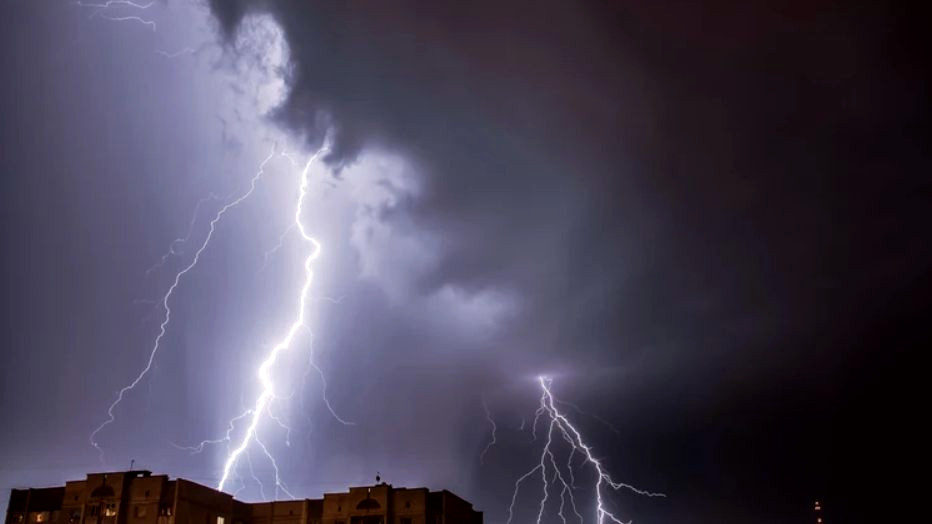In Kyiv, during a severe storm, lightning struck one of the upper floors of a building in Obolon.
This moment was captured on video and shared on Telegram.
Why did this happen and how can one protect themselves from such incidents? Alexander Kryvoshein, head of the satellite research laboratory at the Ukrainian Hydrometeorological Institute, explains.
When can lightning strike a high-rise building?
According to Alexander, there is a belief that lightning typically strikes the highest point because it seeks the shortest path to the ground. However, this is not always true.
“In reality, lightning looks for the easiest way to transfer negatively charged energy. This does not necessarily mean it will always strike the tallest object,” he explains.
Thus, if there are buildings of different heights nearby, the lightning may not hit the tallest one. Many factors come into play.
Firstly, lightning often “seeks” metal or concrete as they are the best conductors of electricity. For example, it may strike a wet concrete roof.
Water is also a powerful conductor. This is why it is advised to avoid open water bodies during a storm.
Another important point is that the operation of electrical devices in a building can influence the risk. The more energy a device consumes, the more “attractive” it becomes to lightning.
“As we see in this video, lightning struck the higher floors. We need to investigate what object was there. Perhaps there was an uninterruptible power supply, a charging station, or appliances that consume a lot of energy,” states Alexander Kryvoshein.
How can the risk of lightning strikes be reduced?
High-rise buildings usually have lightning rods – metal spikes that “take the hit” when needed. Lightning is more likely to strike them since they are made of metal and often the highest point.
However, lightning rods cannot provide a 100% safety guarantee. People need to follow certain rules to ensure their safety.
The best advice, according to Alexander Kryvoshein, is to close windows during a storm. A closed window can act as a barrier between lightning and electrical devices.
“If the window is open, the ‘connection’ between the charge in the cloud and the object in the room is greater than when it is closed,” he states.
Secondly, it is important to turn off all electrical devices, especially those that consume a lot of energy.
The third tip is to avoid standing near metal objects.
As for phone calls, the scientist advises speaking away from windows and following the “two walls” rule.
